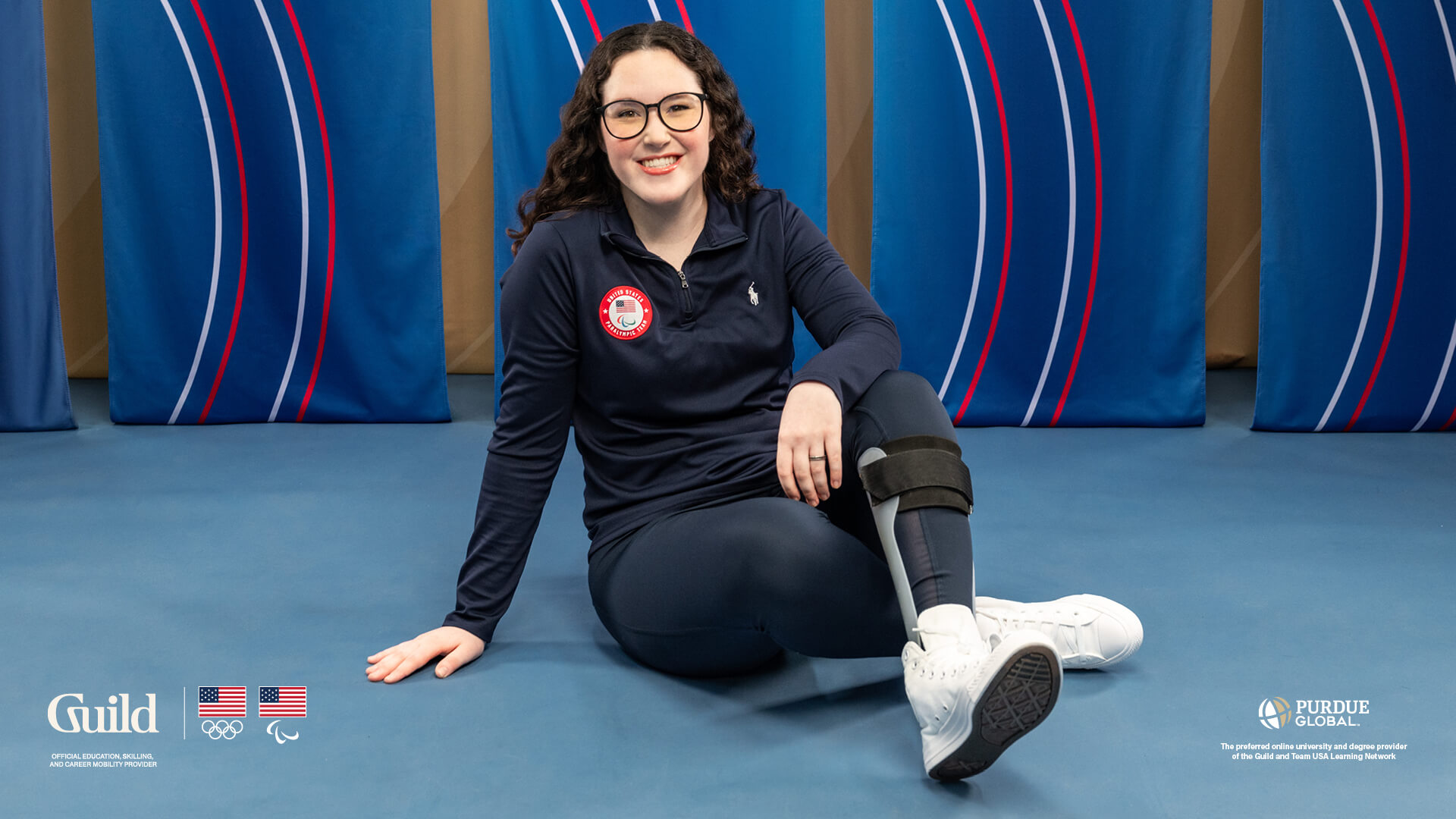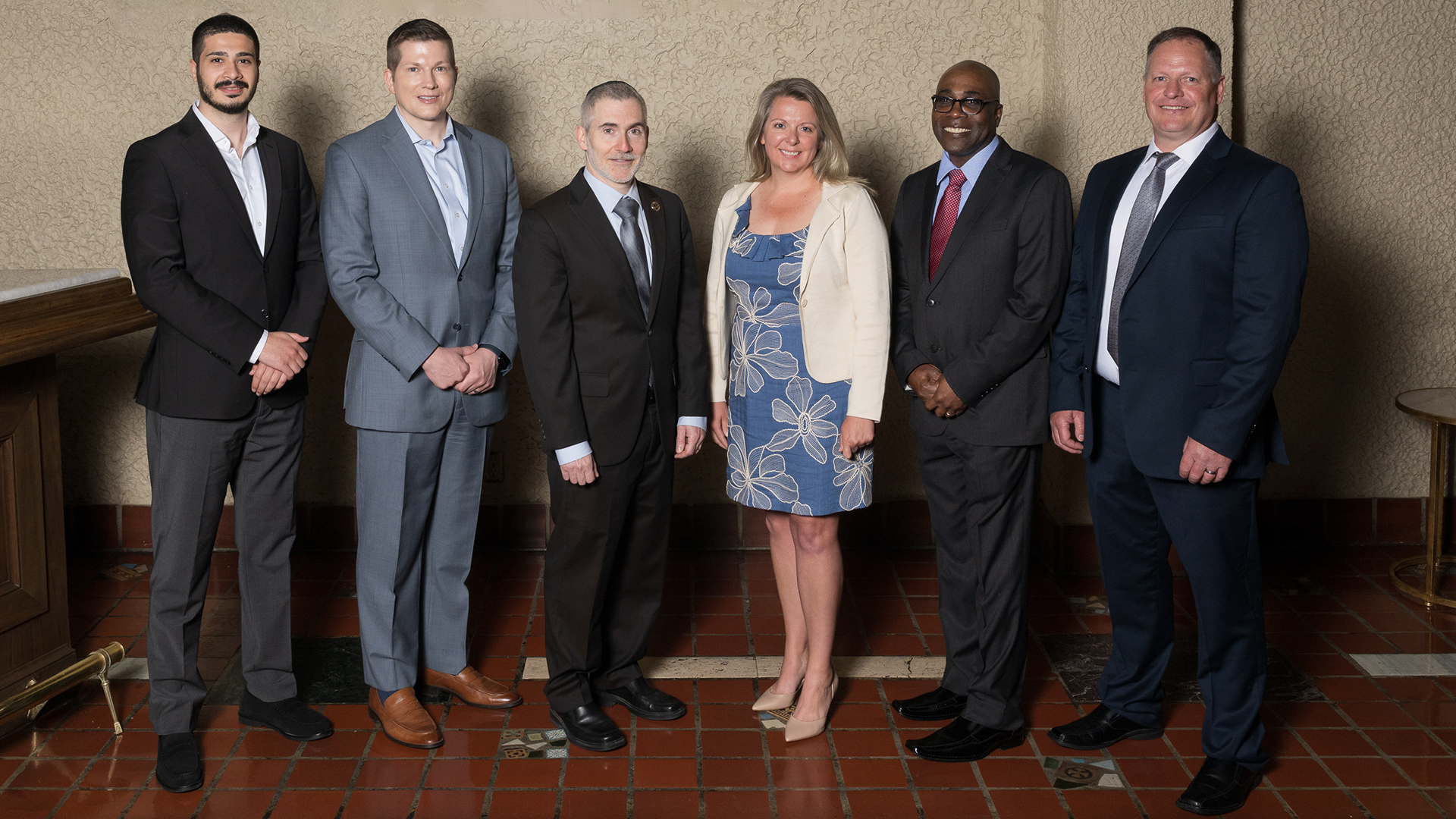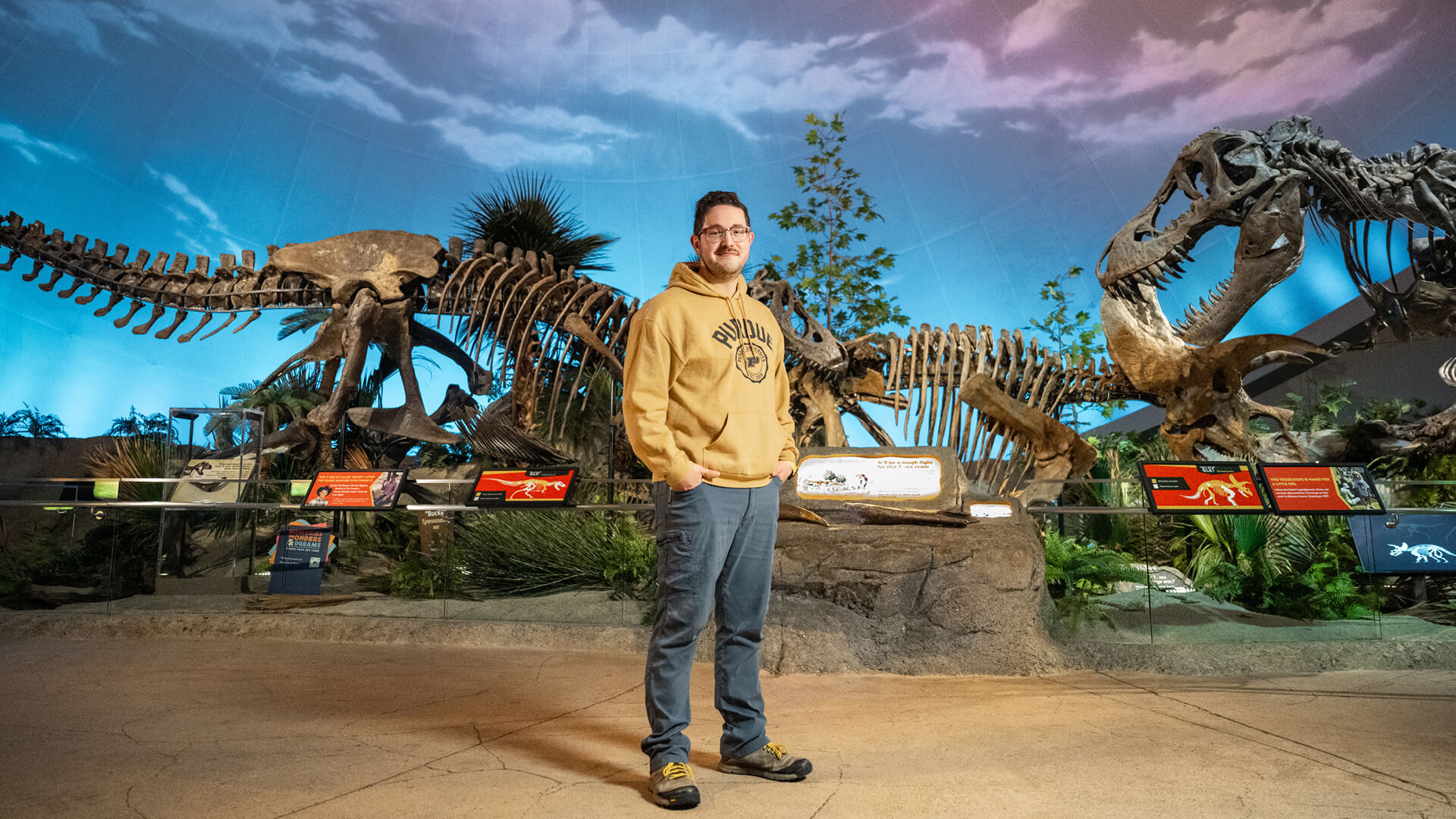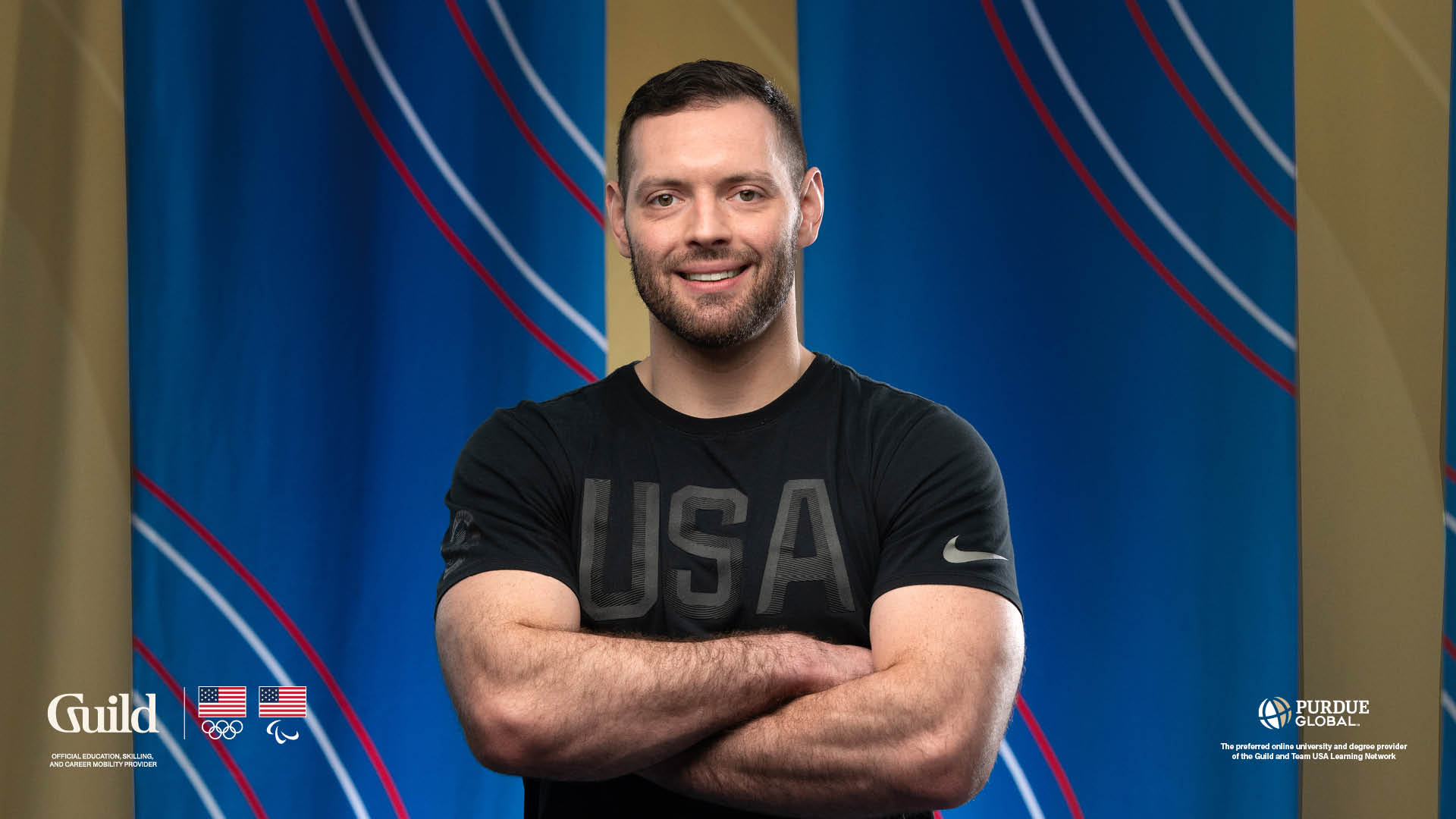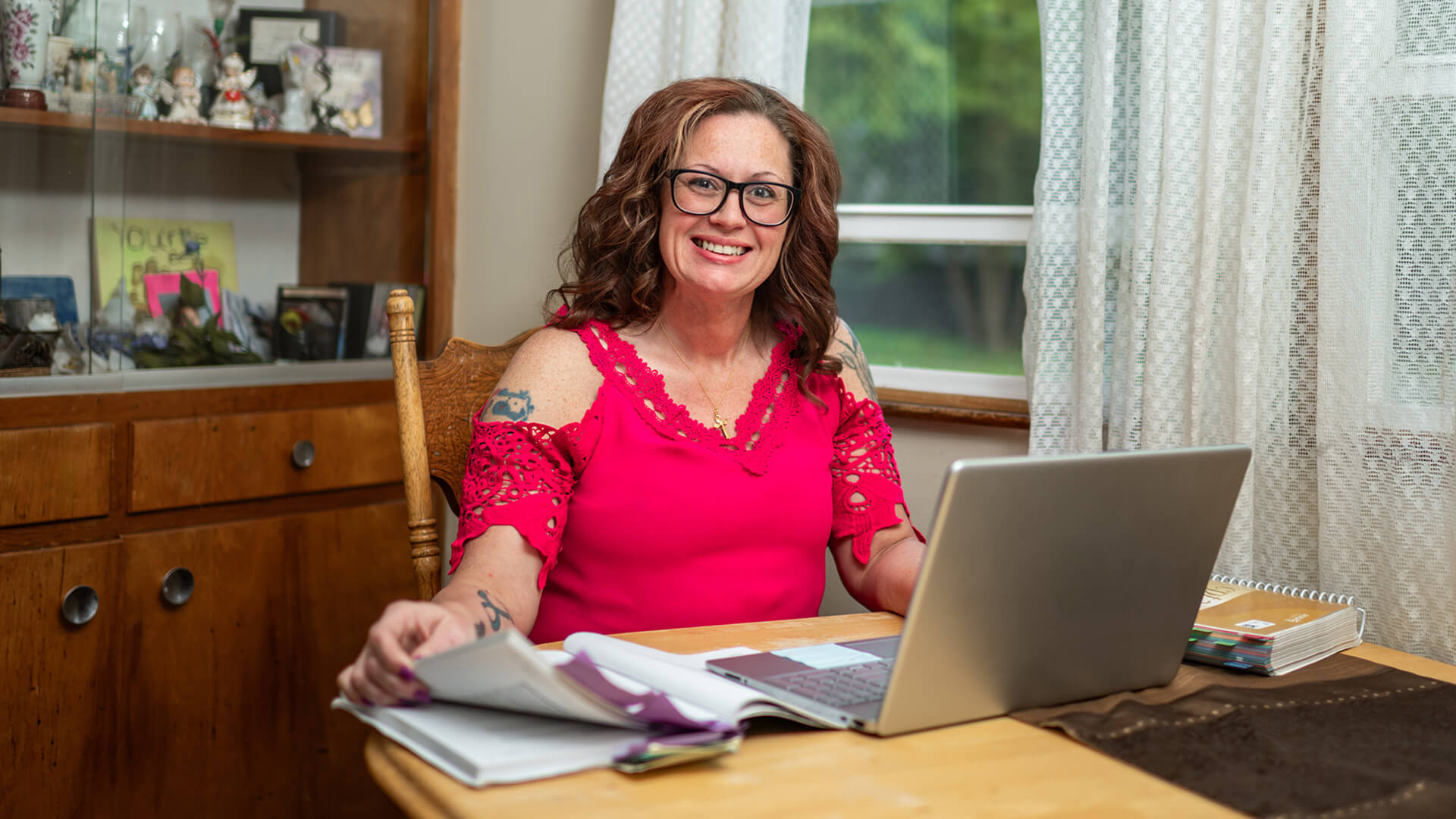Reducing risky sexual behaviors among youth
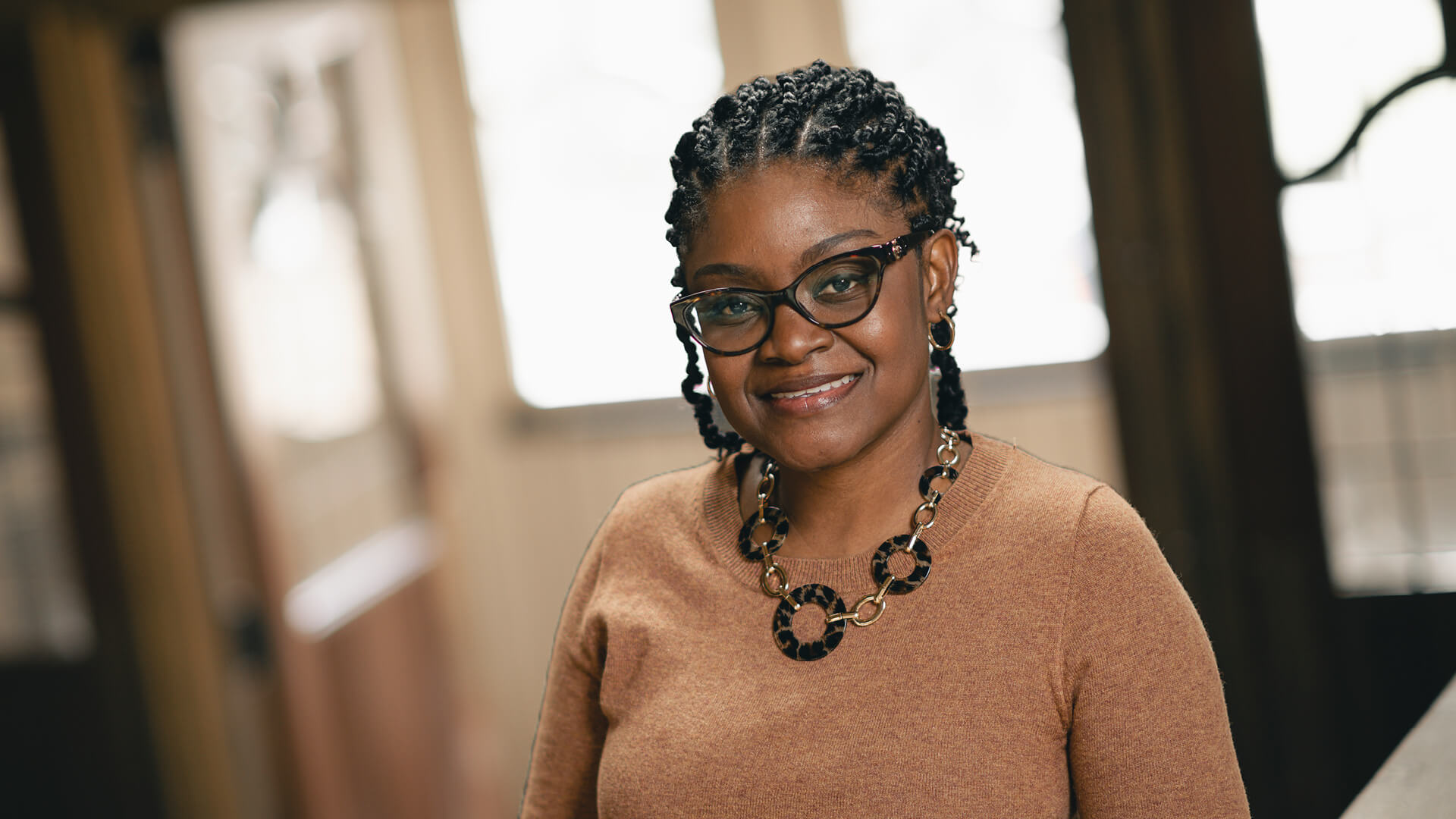
Assistant professor of epidemiology Shandey Malcolm wants to inspire a new, increasingly diverse generation to pursue careers in public health. (Photo by Charles Jischke for Purdue University)
Purdue’s Shandey Malcolm promotes positive health behaviors in at-risk adolescents
For a decade, Shandey Malcolm worked in the Ministry of Health for Turks and Caicos Islands, most recently as the national epidemiologist. She conducted public health surveillance, coordinated outbreak response and performed health data analyses.
“I loved that role,” Malcolm says. “But after a while, I began to realize that I have a passion for teaching, and I was interested in building an academic career in public health. I wanted to focus my research on prevention of risky behaviors in at-risk adolescents to help them be happy, healthy and safe.”
Now an assistant professor of epidemiology in the Department of Public Health in Purdue University’s College of Health and Human Sciences, Malcolm leverages her expertise in epidemiology to find determinants of disease, distribution of disease and frequency of disease to prevent health problems.
“I’m interested in determining what leads to risky sexual behaviors and drug abuse behaviors in adolescents,” Malcolm says. “The answers are complex and multifaceted. There are community factors and interpersonal factors that influence behaviors. My focus is on the social, cognitive and mental health processes such as attitudes, beliefs, expectations and perceptions and how those can be influenced to bring about changes in behaviors.”
Her past work has included examining the effects of family intervention in reducing HIV risk behaviors among high-risk Hispanic adolescents and factors relating to condom use in the Turks and Caicos Islands. She’s now planning to conduct secondary analysis to assess the role parents play in preventing risky behaviors among youth, with the hope of eventually launching pilot studies in the same area
Early on, Malcolm realized that that the poorest outcomes were often experienced by the most disadvantaged in the population. That sparked her interest and spurred her to want to work with at-risk adolescents to make changes in early stages when they can be most impactful.
Unfortunately, there are racial and ethnic minorities in our society who suffer from higher rates of disease than their white counterparts. I believe it is our role, as public health professionals, to uncover those underlying social and environmental determinants that lead to health disparities so we can do something about it.
Shandey Malcolm
Assistant professor of epidemiology
“Unfortunately, there are racial and ethnic minorities in our society who suffer from higher rates of disease than their white counterparts,” Malcolm says. “I believe it is our role, as public health professionals, to uncover those underlying social and environmental determinants that lead to health disparities so we can do something about it.”
As a professor, Malcolm hopes her experience in the field and global health perspective inspires her students to pursue careers in public health. As part of the university’s first targeted cluster hire, she also embraces the opportunity to create an environment that supports minority students.
“There are so many different qualities of being a good professor – being approachable, for instance,” Malcolm says. “But there’s something special about working with someone who looks like you and has a shared background. When students learn from educators who look like them, they see those teachers as role models and the future they envision for themselves can expand.”
In addition to increasing diversity among faculty and promoting inclusion among the student body, Malcolm is encouraged by the university’s strategic efforts to recruit researchers working in the fields of public health and health equity.
“I love Purdue’s commitment to inclusivity and diversity,” Malcolm says. “I love the commitment to innovation and the caliber of researchers at this institution, particularly in the Department of Public Health. “I came in with a great group of individuals. They are all brilliant, and some of them are already giants in their field. I’m really excited to see what we can do together.”
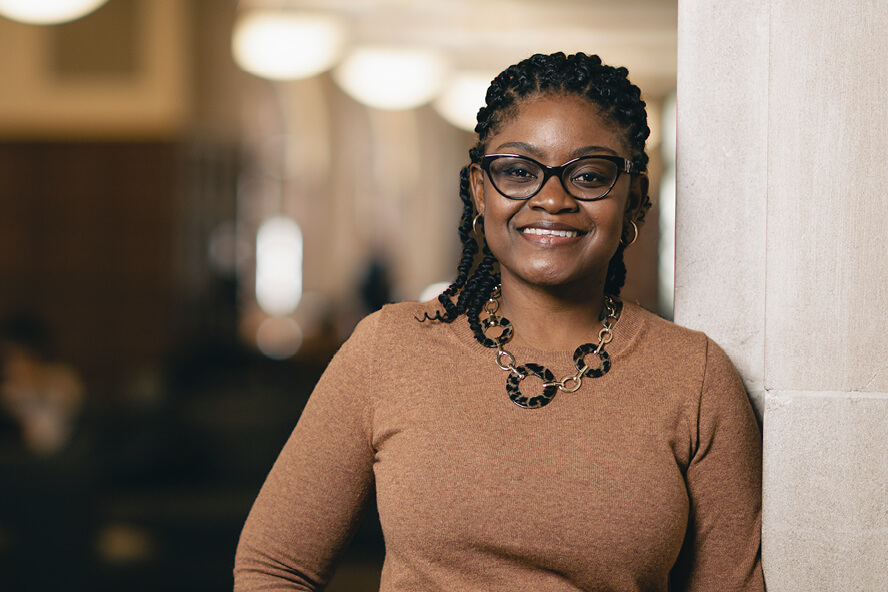
There’s something special about working with someone who looks like you and has a shared background. When students learn from educators who look like them, they see those teachers as role models and the future they envision for themselves can expand.
Shandey Malcolm Assistant professor of epidemiology

